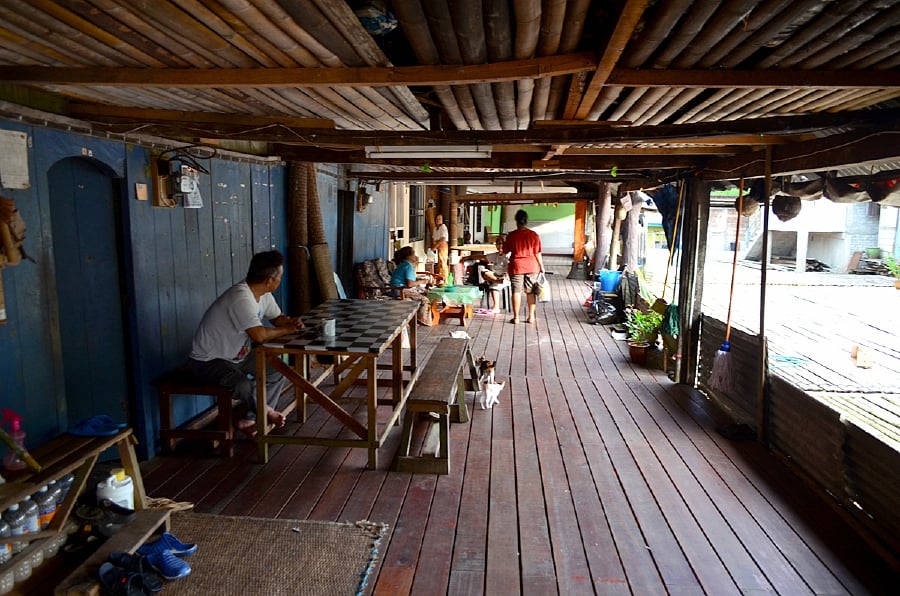Once again this week, the online Radio Free Sarawak has had reason to cover abuses of what ought to be the democratic appointment of village headmen in rural Sarawak.
The pattern has become increasingly familiar in recent months, if complaints to the show are anything to go by, in that a growing number of elected headmen have found themselves arbitrarily replaced, for example by the decision of a District Officer supported by the local Assemblyman.
These strong arm tactics have notably occurred in situations where the headman has stood up for his community against intrusions by logging or other commercial interests into their area.
Such figures have been replaced by appointed individuals who have shown themselves willing to cooperate with the entities who have targeted their areas, even if they represent a minority of their constituents.
This is what happened in Ba Abang and Ba Pakan, both regions afflicted by unwanted incursions by loggers, as followed and reported on the programme.
Yet, as the veteran former civil servant turned civil society activist, Nicolas Bawan, pointed out (6th May on RFS), any headman who is regarded as non-supportive of the government is in danger of being subtly replaced, as he puts it “by unseen hands”.
This is what happened, according to a complaint made by the Headmen’s Association in Engkilli, with a sweep of appointments last week whereby no less than 12 names put forward by their communities for ‘re-certification’ (the process whereby a headman is confirmed as continuing to be eligible for the government allowance) were withdrawn, owing to unspecified ‘technical’ reasons, after having already been published and certificates awarded.
When the list was republished these twelve names – all people put forward by their longhouse and then recommended as a result by the local DO and Resident – had been replaced.
What a mockery of the principle of local democracy, as pointed out by the association in a public statement:
“Never in the history of the appointment of tribal leaders and community leaders in DUN Engkilili has there been any third-party intervention. On the contrary, it is the absolute power of longhouse and village residents to determine their own tribal leaders after passing a screening by the police, the district council and finally the representatives of the people, namely Our assemblyman,” they said.
“However, this time it is rather strange when a total of 12 house harvesters and two Chinese captains have been ‘removed’ to receive their re-appointment certificates which are scheduled for May 7 at the Engkilili District Council Hall,” said the statement.
According to the statement, this issue arose after all of them, including 12 house harvesters and two captains, were ordered to return their re-appointment certificates received on March 14 to the Lubuk Antu and Engkilili District Offices due to a technical problem with their respective certificates.
“We were instructed to return the reappointment certificate less than 24 hours after the certificate acceptance ceremony because according to them there was a technical problem with our certificate.
“However, in the new circular letter received and the distribution list of those invited to receive re-certificates on May 7, it was found that a total of 12 house harvesters and two captains were not invited who may have been terminated without a letter of reason,” they said. [Utusan Borneo translated]
Of course, the peril of not towing the government line has been long recognised by headmen who were made beholden to the government under the Barisan National leadership by the introduction of the government allowance for headmen, which has always been quietly, sometimes explicitly, conditional on performing the will of the ‘paymaster’.
“Any headman who does not support the government candidate is marked” says Bawin, and spectacles such as that in Engkilli last week have been highly effective in making that point. No attempt to explain or justify the ‘technical’ reason behind sacking those village representatives has yet been made.
Stories have abounded at election time of opposition canvassers and candidates being chased off the premises by zealous headmen, clearly anxious to be seen supporting the local government YB and any policies favoured by the government of the day.
Not to do so risks the toxic label of being “anti-government” says Bawin.
The result is that once again the inherited trappings of democracy in Sarawak are exposed as a sham, whereby representation has been replaced by patronage in return for obedience that has enabled the vast majority of Sarawak’s wealth of resources to be drained for the benefit of the distant few, leaving the inland longhouse communities in conditions of staggering backwardness for a high-income, oil-rich state.

